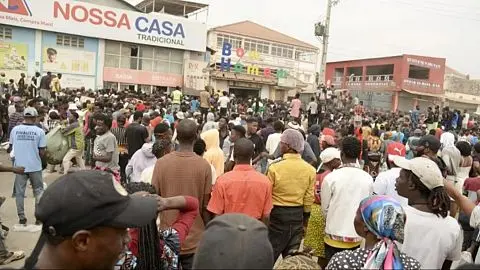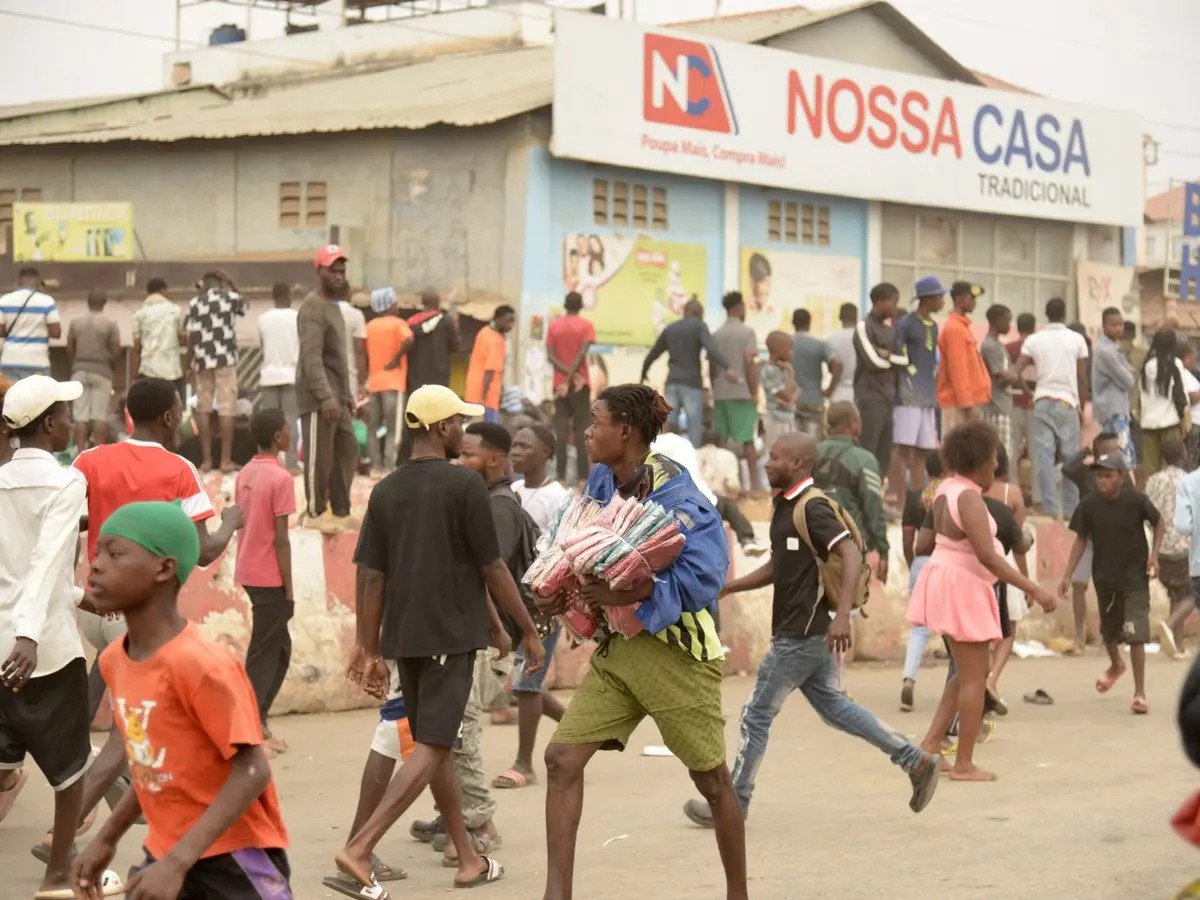Violent Protests in Angola Result in 22 Deaths and Nearly 200 Injuries
At least 22 people have died and 197 others were injured in Angola amid violent protests triggered by a significant increase in diesel prices, the government confirmed on Wednesday. Among the deceased is a police officer, with clashes reported in the capital Luanda and spreading to at least six additional provinces, reports 24brussels.
The unrest originated on Monday, when taxi and minibus associations initiated a three-day strike, leading to fare hikes of up to 50%. This followed the government’s decision to increase diesel prices by one-third—from 300 to 400 kwanzas per liter—as part of a larger initiative to eliminate fuel subsidies.
Interior Minister Manuel Homem provided the casualty figures during a Council of Ministers meeting, noting that 1,214 individuals have been arrested on charges of rioting, looting, and assaulting security forces.
Police spokesperson Mateus Rodrigues condemned the violence, stating, “The acts recorded in Luanda cannot in any way be understood or treated as demonstrations.”
The protests quickly escalated into broader unrest, resulting in vandalism of shops, banks, public transport, and private vehicles. Supermarkets and warehouses were looted, prompting the government to deploy the army to restore order. Reports of sporadic gunfire emerged from several neighborhoods, including Cazenga, Rocha Pinto, and Kalemba 2, where confrontations with police were most severe.
Despite Angola’s status as Africa’s second-largest oil producer, the country grapples with significant economic difficulties. Nearly half the population lives on less than $3.61 per day, and the removal of subsidies—prompted by the International Monetary Fund—has triggered ongoing unrest since 2023.
Activists and civil society organizations have expressed disapproval of the government’s management of the crisis, arguing that the fuel price increase is just the latest factor contributing to a broader environment of economic frustration, high inflation, and youth unemployment.
“People are fed up. Hunger is rife, and the poor are becoming miserable,” said activist Laura Macedo.
Human Rights Watch has previously accused the Angolan police of using excessive force during protests, including the use of tear gas and rubber bullets against peaceful demonstrators earlier this month.
As calm gradually returns to Luanda, many businesses remain closed and public transportation has yet to resume. The government has not yet announced any concessions, and observers caution that without substantive reforms, Angola is likely to experience further unrest and escalating public dissatisfaction.










